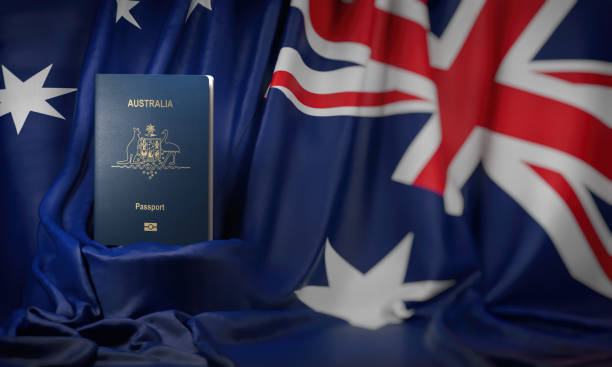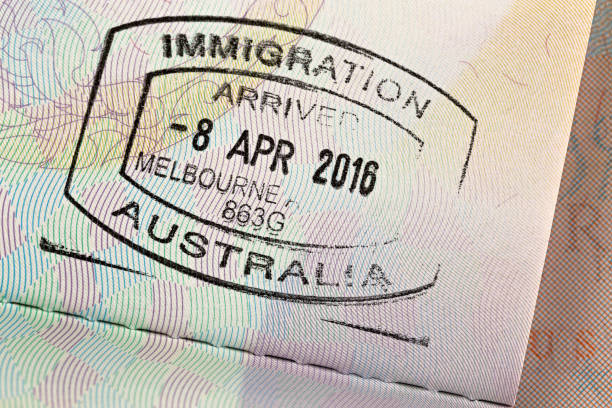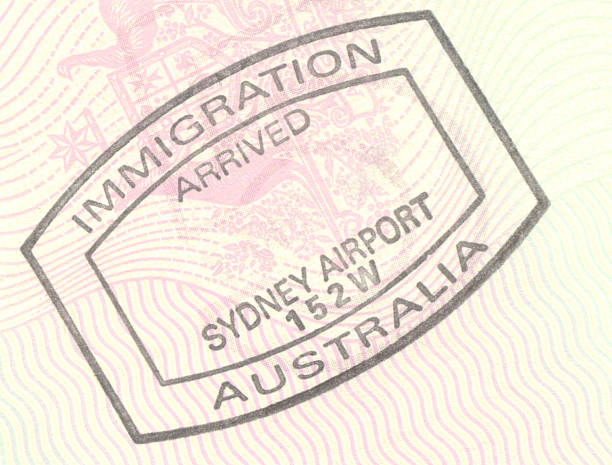Criminal justice visas (CJVs) are temporary visas that allow foreign nationals to enter Australia to assist in criminal investigations or proceedings. This visa is issued to people who are not Australian citizens or permanent residents. This visa is important in migration law matters because it allows foreign nationals to:
- Enter Australia without the need for a permanent residency or citizenship
- Assist in the investigation or prosecution of the crime without going through the lengthy process of applying for permanent residency or citizenship.
- Enter Australia for a limited period of time, which means that they cannot overstay their visa and become unlawful citizens.
There are also two kinds of Criminal Justice visas concerning the management of justice:
- A Criminal Justice (Entry) Visa: This allows a non-citizen to temporarily enter and reside in Australia.
- A Criminal Justice (Stay) Visa: This mandates a non-citizen already in Australia to remain in the country.
Criminal justice visas are also set out in the Migration Act of 1958. The Act is the primary legislation governing migration law matters in Australia. This Act is also the key reference point for anyone seeking to understand the legal framework surrounding CJVs. Read on to know more about what provisions the Migration Act has outlined for criminal justice visas.
Section 155: Criminal Justice Visas
According to Section 155 of the criminal justice visas a criminal justice visa:
- Enables a non-citizen to travel to and temporarily enter Australia for criminal justice purposes; and
- Allows a non-citizen to stay temporarily in Australia for criminal justice purposes
Section 156 and 157: Criterion for CJVs
According to Section 156, a non-citizen to obtain a criminal justice entry visa is that they must have a valid criminal justice entry certificate. Section 157 states that a person is eligible for a criminal justice stay visa, a non-citizen must meet one of the following requirements:
- Possess a valid criminal justice stay certificate, or
- Have a current criminal justice stay warrant in their name.

Section 158: Other Criteria for Non-citizens
The Section 158 of the criminal justice visas states that the eligibility requirements for a criminal justice visa for non-citizens are also strictly limited to:
- Meeting the criterion specified in Section 156 or 157 of the Act; and
- Satisfying the Minister that, it is appropriate to grant the visa after:
- Considering the safety of individuals and the general public
- Making necessary arrangements for the non-citizen’s removal from Australia; and
- Considering any other relevant factors, it is appropriate to grant the visa
Section 159: Procedure for Obtaining Criminal Justice Visa
Section 159 of the criminal justice visas state the conditions under which the Minister can consider granting a criminal justice visa to a non-citizen. These two conditions are:
- The Minister has the authority to consider granting a criminal justice visa for that individual. However, the non-citizen must possess a valid criminal justice certificate or a criminal justice stay warrant.
- After assessing the criminal justice visa application and confirming that the criteria are met, the Minister has discretionary power to:
- Approve the visa and create an official record of its grant
- Provide any necessary evidence or documentation of the granted visa as deemed suitable
Section 160: Criminal Justice Visa Conditions
Section 160 of the criminal justice visas explains that the regulations may specify certain conditions that must be met for criminal justice visas. The non-citizen must not engage in any work in Australia. However, the exception of work that is necessary for the purposes of the criminal justice certificate or stay warrant. This includes working as a prisoner if the non-citizen is being imprisoned.
Note: The definition of “work” in this context does not include such work for the purposes of a criminal justice certificate or stay warrant.
Section 161: Effect of Criminal Justice Visas
Section 161 of the criminal justice visas outlines the effects and limitations of criminal justice visas for non-citizens in Australia. Here is a breakdown of each point:
- A criminal justice entry visa allows a non-citizen to travel to, enter, and stay in Australia while the visa is valid.
- A criminal justice stay visa allows a non-citizen to remain in Australia while the visa is valid. The visa releases non-citizens from that detention if the non-citizen is in immigration detention,.
- Criminal justice visas do not prevent a non-citizen from leaving Australia. This provision does not also override any court orders or warrants that may be in effect.
- Holders of a criminal justice entry visa cannot apply for visas other than protection visas.
- If a non-citizen, who previously held a criminal justice entry visa, remains in Australia after the visa is cancelled, they are only eligible to apply for a protection visa. The same case goes for any other type of visa.
Agencies Responsible for CJVs
The agency responsible for issuing your criminal justice visa will:
- Keep you updated on its progress; and
- Bear the costs of your transportation to, detention in, and removal from Australia
If you are a witness, the agency will also provide information about the legal process and your entitlements. NSW Police or the Office of the Director of Public Prosecutions (ODPP) will issue your certificate depending on the stage of the prosecution and the severity of the crime. If you have any questions about your visa, consult your lawyer or the contact person provided by the agency.

Criminal Justice Visas: Helpful Tips
- Ensure that you meet the eligibility criteria: Familiarise yourself with the eligibility criteria for a criminal justice visa. This includes having a criminal justice certificate or warrant issued against you and not being considered a risk to national security before applying.
- Seek legal advice: Seek a visa lawyer to understand the legal process involved in obtaining a criminal justice visa. Lawyers can help you know your rights and obligations as a non-citizen in Australia.
- Provide a complete and accurate application: Submit a complete and accurate application by providing all the necessary documents and information to support your application. This includes your criminal justice certificate or warrant, medical records, and any other relevant documents.
- Show evidence of your intent to return: Provide evidence to demonstrate that you have strong ties to your home country and intend to return after your visa expires. This may include evidence of family ties, property ownership, or employment.
- Be honest and transparent: Be honest and transparent throughout the visa application process, and do not provide false or misleading information. False information may result in application refusals and cancellations.
- Cooperate with authorities: Cooperate with Australian authorities during the visa application process and while you are in the country. Comply with all the conditions of your visa, including any reporting or monitoring requirements.
- Keep track of your visa status: Stay informed about the status of your criminal justice visa application and any conditions attached to your visa. Contact the agency that issued your certificate or warrant, or seek legal advice if you have any questions or concerns.
How JB Solicitors Can Help
Criminal justice visa applicants should seek legal advice so they can understand the legal process involved in obtaining the visa. We at JB Solicitors can ensure that visa applications are complete and accurate.
Our team can provide all necessary documents and information to support a person’s visa application. Contact us today for more information about criminal justice visas.
